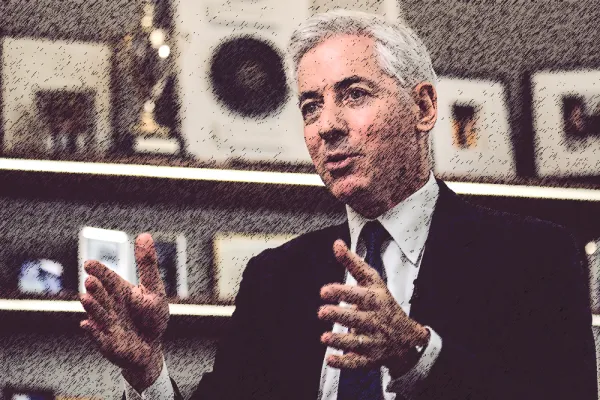Tiger Cub O. Andreas Halvorsen’s Greenwich, Connecticut-based Viking Global Investors said in a regulatory filing late Wednesday that it has made an investment in Roivant Sciences, a private biopharmaceutical holding company founded by former QVT Financial partner Vivek Ramaswamy that aims to revive potentially promising drugs that have languished in the pipelines of other companies. The size of the investment was not disclosed. Roivant simultaneously announced that Andrew Lo, a professor of finance at MIT’s Sloan School of Management and founder of Boston-based quantitative investment firm AlphaSimplex Group, has been appointed to the company’s board as an independent director.
On its website, Roivant Sciences says it “delivers R&D solutions to our partners in the biopharmaceutical industry, helping them unlock value from their pipelines by completing the clinical development of promising drug candidates.”
But the company has courted controversy from the start, according to a Forbes report. Roivant took one of its companies, Axovant Sciences, public last year in what Forbes described as the biggest biotech ever, raising $360 million — but it acquired the only asset it had before the IPO, an Alzheimer’s drug, from GlaxoSmithKline for a mere $5 million in upfront payments and a 12.5 percent share of future royalties. Meanwhile, Axovant’s shares tumbled quickly after the June 2015 IPO, falling 12 percent by September. The shares closed Thursday at $12.38.
Roivant’s approach has also raised questions in a time when the ethics of pharmaceutical companies have been under enormous scrutiny. Ramaswamy argues that his aim is to save lives and create the “Berkshire Hathaway” of drug development in the process, he told Forbes last year. “It’s an ethical problem of an underappreciated magnitude,” Ramaswamy said in the interview. “So many drugs that would have been of use to society are cast aside. Certain drugs have gone by the wayside for reasons that have nothing to do with their underlying merits.”
Ramaswamy launched Roivant with $100 million from his former employer, QVT, according to Forbes. In the past month Roivant has revealed two new company launches: Enzyvant Sciences, focusing on a rare metabolic disorder called Farber disease, and Myovant Sciences, which it is launching along with Takeda Pharmaceuticals to develop a prostate cancer drug, according to Forbes.
___
The Securities and Exchange Commission charged a New Jersey-based litigation finance hedge fund and its manager with fraud, claiming that Roni Dersovitz and his firm RD Legal Capital misrepresented the type and diversification of its assets under management and withdrew assets from the funds using valuations based on “unreasonable assumptions” and therefore “draining the funds of liquidity at the expense of investors.”
RD Legal plied a strategy of buying stakes in legal settlements at a discount, in theory allowing litigants to cash out early as legal proceedings dragged on while allowing the firm to reap big profits when the cases finally settled. But the SEC says in its complaint that in practice, “Respondents invested the funds’ money however they saw fit, including in unsettled cases, cases unaffiliated with any law firm, and other cases for which collection was still subject to litigation risk.”
The SEC contends that by the end of 2011, more than half of RD Legal’s assets were tied up in unsettled cases or a default judgment. By the end of 2013, according to the SEC, more than 60 percent of its assets had been invested in a default judgment relating to a lawsuit tied to the Iranian terrorist bombing of a United States Marine barracks in Beirut in 1983.
“The overwhelming majority of the Funds’ assets were associated with legal receivables, the collection of which was subject to ongoing — and, at times, protracted — litigation risk,” the complaint said. “In June 2011, over 40% of the Funds’ assets were invested in receivables associated with ongoing litigation. By early 2016, that proportion had ballooned to over 90%.”
Last year the Wall Street Journal reported that the fund had employed “a series of complex accounting maneuvers” to concoct an unusual arrangement that allowed it to earn millions before it was clear the terrorist litigation would be paid — and that it did so at the same time that it suspended redemptions in its hedge fund, citing a “momentary period of illiquidity.” The paper notes that the SEC’s action on RD Legal arises from the regulator’s increased scrutiny of how hedge funds price their hard-to-value holdings.
___
Shares of Valeant Pharmaceuticals International rallied on Thursday, gaining 6.48 percent after CEO Joseph Papa assured shareholders that despite selling a boatload of Valeant stock, former CEO Michael Pearson was still a “significant shareholder” in the company and is required to hold 1 million shares for two years following his departure. Pearson sold nearly $100 million of Valeant stock over the previous two weeks, according to reports. Papa said Pearson’s sales were executed to help him meet tax obligations and have more liquidity.
The stock is still a big holding of William Ackman’s Pershing Square Capital Management. On Thursday, Ackman appeared on CNBC, saying “it’s kind of sad that [Pearson] was forced to sell out at this price.” Valeant shares closed at $21.62, down more than 90 percent from a peak of nearly $260 in August 2015. Meanwhile, Andrew Left of Citron Research revealed on Wednesday that he had taken a new short position in the company.




